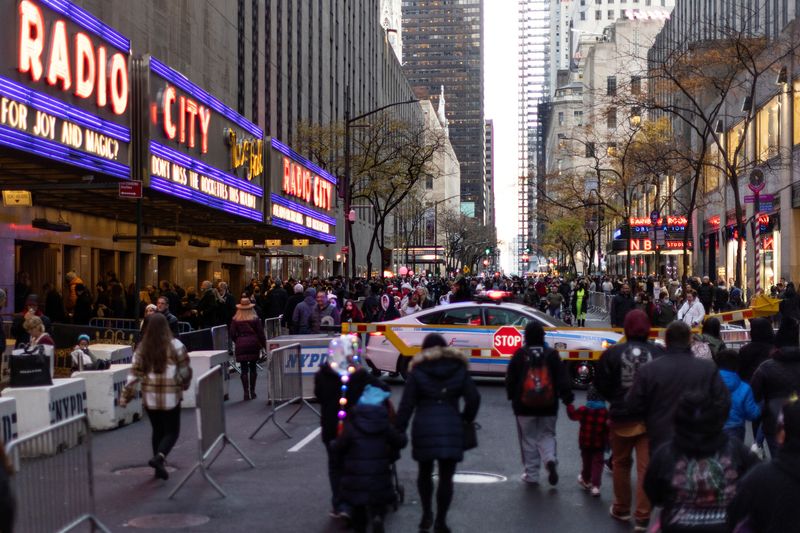LONDON (Reuters) - Inflation is in the driving seat for markets already taking a punt on when central banks will start to cut borrowing rates.
That puts Tuesday's U.S. inflation data on the must-watch list. Who replaces Haruhiko Kuroda as the next Bank of Japan (BOJ) chief is also in focus with government nominations likely soon, while a deluge of UK data is due.
Meanwhile, in earthquake-hit Turkey, as an enormous humanitarian crisis causes an outpouring of concern, there is also a sense that the disaster could dominate one of the key elections of 2023.
Here's a look at the week ahead in markets from Kevin Buckland in Tokyo, Amanda Cooper, Naomi Rovnick and Karin Strohecker in London and Ira Iosebashvili in New York.
1/ INFLATION BET
Surprisingly strong January U.S. jobs data forced markets to rethink the view that interest rates will peak soon. Now, Tuesday's latest inflation figure is the next big test for where the Federal Reserve takes rates in coming months.
After rising to multi-decade highs last year, inflation has come in below expectations for three straight months, given the Fed's most aggressive rate-hiking campaign since the 1980s.
Economists expect headline inflation to rise 0.5% in January after dipping 0.1% in December.
Stock markets are confident that the Fed can bring down inflation without triggering a sharp growth slowdown.
A strong inflation print could spark another rethink on whether the Fed will actually cut rates by year-end - potentially hurting a rally that has boosted stocks and bonds after last year's rout.
2/ MR BOJ
Japan's government is set to nominate a dark horse candidate to replace Haruhiko Kuroda, whose decade as Bank of Japan chief will end soon.
Deputy governor Masayoshi Amamiya was pick of the press and economists, but a Nikkei report on Friday suggests that Kazuo Ueda, a 71-year-old academic and a former member of the BOJ policy board, will be nominated.
The yen strengthened on the report, a curve ball to markets betting on Amamiya, known as "Mr. BOJ" for driving unconventional monetary policies, to take over.
According to the Nikkei, Amamiya declined the top job when approached.
Markets are watching closely. After all, at stake is the future of an ultra-loose monetary policy, which many suspect is likely to shift as inflation moves higher.
3/ JUST HOT AIR?
A strident U.S. response to a so-called a Chinese "spy balloon" in early February could be a bearish signal for one of this year's most favoured trades.
Chinese stocks and the offshore renminbi have been popular with investors as Beijing relaxed the COVID restrictions that had dragged down growth in the world's No.2 economy to one of its lowest rates on record last year.
U.S. President Joe Biden has vowed to "protect" the country from Chinese "threats", following pressure from Republican lawmakers to toughen up on Beijing.
U.S.-China tensions are not new, but they have become fraught since former White House speaker Nancy Pelosi visited Taiwan last year. And almost a year on since Russia invaded Ukraine, investors know not to ignore geopolitical risks.
4/ CAN'T BUY ME LOVE
Spare some Valentine's Day love for British consumers.
January's inflation report on Wednesday could show double-digit price rises, meaning no respite yet on the interest-rate front.
With inflation-adjusted pay falling at its fastest since 2009, retail sales in December - when people are likely to splurge - fell by the most for that month in at least 25 years.
Friday's January retail sales data won't be much prettier. Consumers are certainly borrowing. Latest data shows credit card lending is around its highest since 2020, but that spending is not on houses - mortgage approvals are at 2009 lows - or out at the shops.
With grocery price inflation at nearly 17% and energy bills tipped to rise 20% this year, food and heating may be where any spare cash is going - not a good sign for the only G7 economy the IMF expects to shrink this year.
5/ SHAKEN
There's global concern for Turkey and neighbouring Syria where an earthquake has led to a humanitarian disaster with the death toll reaching 21,000.
There's also acknowledgement that President Tayyip Erdogan's handling of the crisis could dominate the run-up to May's elections, with the rush to save lives overtaking a poll expected to be defined by soaring inflation and regional security.

Turkey's 2002 election - three years after a 7.6 magnitude earthquake near Istanbul that killed nearly 18,000 people - saw the then coalition government decisively ousted as voters viewed its disaster and subsequent financial crisis response as poor.
As the struggle to safe lives continues, presidential and parliamentary elections - perhaps the most consequential in the century-long history of the republic - will determine whether Erdogan enters his third decade in power.